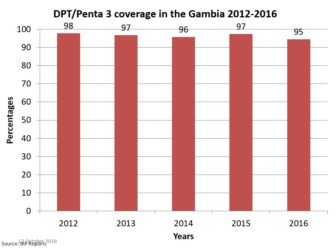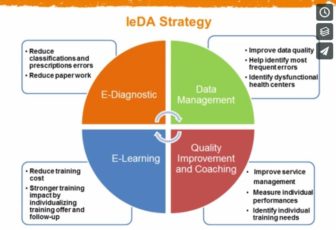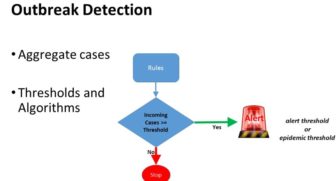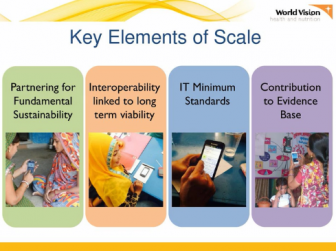Nov 14, 2018
Tanzania Immunization Registry Functional Requirements
Applications, eHealth, Immunization Registry, mHealth, Packaging, People, Products, Software
Tanzania
Nov 14, 2018
Zambia Electronic Immunization Registry User Manual
Applications, DHIS2, eHealth, mHealth, Packaging, People, Products, Training
Zambia
Oct 22, 2018
BID Regional Program Concept Note
eHealth, Immunization Registry, mHealth, Peer Learning, People, Policies
Global

Oct 17, 2018
BLN Webinar: Piloting of the e-Tracker App in the DHIS2 in The Gambia
DHIS2, eHealth, Immunization Registry, mHealth, Software
Gambia
The BID Learning Network (BLN) invites you to view the webinar slides from “Piloting of the e-Tracker App in the DHIS2 in The Gambia.” In 2016, the Expanded Programme on Immunization (EPI) of The Gambia received a small grant from the BLN to pilot an Electronic Immunization Registry (EIR) with the main objective of strengthening the data management capacity at central and regional levels in the country.

Jul 4, 2017
BLN Webinar: Lessons Learned in Scaling Up – How TDH is Deploying an m-Health Application in 600 Clinics in Burkina Faso
The BID Learning Network (BLN) invites you to view a webinar entitled “Lessons Learned in Scaling Up: How TDH is Deploying an m-Health Application in 600 Clinics in Burkina Faso.” In 2013, Terre Des Homme (TDH) together with the Ministry of Health in Burkina Faso developed the Integrated e-Diagnostic Approach (IeDA), an innovative m-Health strategy that combines the use of mobile technologies and quality improvement methodologies for the Registre Electronique des Consultations (REC), an electronic registry for patient consultations.
Feb 6, 2017
Assessment of mHealth applications for their potential to provide healthcare information for citizens in low resource settings
This 2017 report provides an update and an extension of the assessment published in 2014. It reviews the criteria and “traffic light” indicators selected for the previous assessment, updates the 2014 assessments of particular healthcare information “apps” in the light of developments since then, and includes assessments of the potential of some additional apps, particularly some that have appeared since 2014. It also outlines the emerging picture on “downstream” issues of user engagement with and impact of these applications.
Jan 31, 2017
Webinar: The Uganda eIDSR system
eHealth, EPI Plan, Immunization Registry, mHealth, Packaging, Peer Learning, People, Software
Uganda
The BID Learning Network (BLN) invites you to view a webinar entitled “The Uganda eIDSR System”. During this webinar, colleagues from Uganda share how they have built an information system with their own resources, utilizing a multi-sector approach. They share how they have engaged with different arms of the government and other local partners to build a system that is now attracting interest from external funders.
Oct 13, 2016
VaxTrac needs assessment for development of SMS feature
VaxTrac's study of the effectiveness of strategies and methods for providing immunization reminders to parents and guardians of children in Benin. The objective of the study was to understand how vaccination reminders are currently used and how they may be used to remind guardians, health agents or relais of upcoming or missed vaccination sessions. Appointment reminders can be a simple and inexpensive way to provide information to parents that increases schedule adherence, immunization coverage, and the number of fully immunized children.
Mar 10, 2016
Webinar: Economies of Scale, Integration & Interoperability in Digital Health
DHIS2, eHealth Plan, mHealth, People
Global
The BID Learning Network (BLN) recently held a webinar entitled “Economies of Scale, Integration & Interoperability in Digital Health”.
This webinar discussed World Vision’s experiences in different countries and contexts, and the successes and challenges encountered (notably in engagements with governments) as they have worked in the field of digital health.
Jan 13, 2016
World Development Report 2016: Digital Dividends
Digital technologies have spread rapidly in much of the world. Digital dividends—that is, the broader development benefits from using these technologies—have lagged behind. In many instances, digital technologies have boosted growth, expanded opportunities, and improved service delivery. Yet their aggregate impact has fallen short and is unevenly distributed. For digital technologies to benefit everyone everywhere requires closing the remaining digital divide, especially in internet access. But greater digital adoption will not be enough. To get the most out of the digital revolution, countries also need to work on the “analog complements”—by strengthening regulations that ensure competition among businesses, by adapting workers’ skills to the demands of the new economy, and by ensuring that institutions are accountable.Jump in. Expand your knowledge.
Events
No upcoming events.
